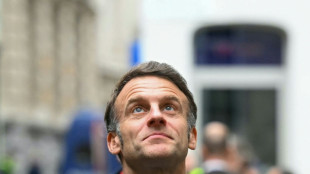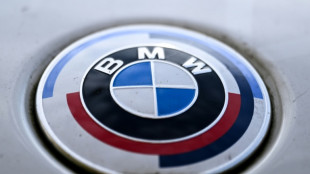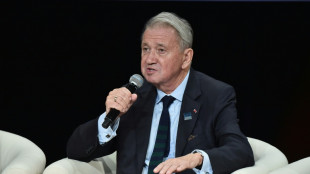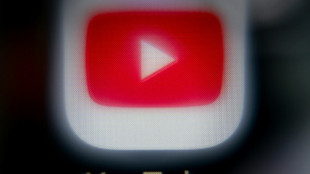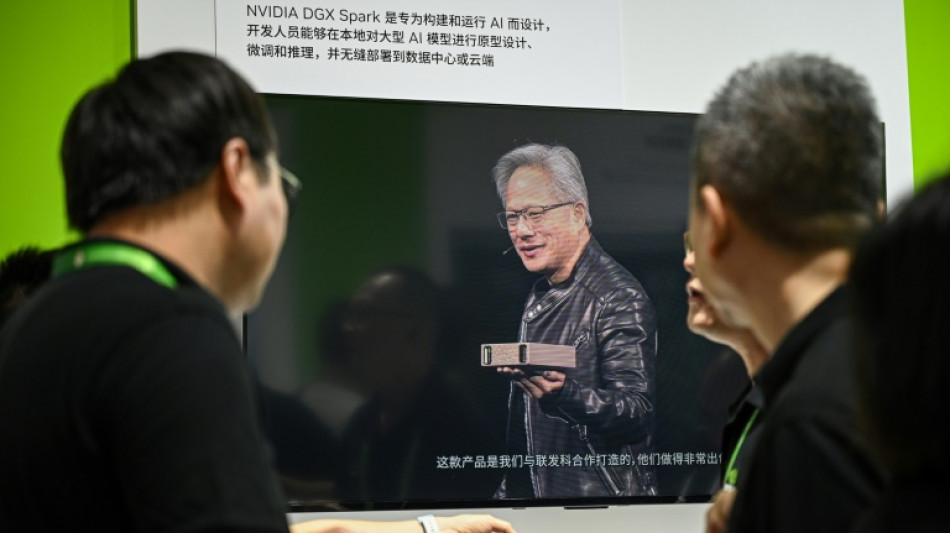
Nvidia's Huang says 'doing our best' to serve Chinese market

Nvidia CEO Jensen Huang said on Wednesday his firm was "doing our best" to serve China's vast market for semiconductors after meeting Beijing officials.
Huang is in the Chinese capital this week to attend the China International Supply Chain Expo, a forum for the country to boost its image as the global defender of free trade in contrast to the tariff chaos sparked by US President Donald Trump.
He said officials had told him the country was "open and stable".
"We spoke about... China welcoming foreign companies to invest here and build businesses here, and that China is open and stable," he told reporters at the expo.
Huang also said he had told them his firm, which this week became the first to hit $4 trillion in market value, was keen to serve the massive Chinese market for microchips needed in everything from mobile phones to electric vehicles.
"They want to know that Nvidia continues to invest here, that we are still doing our best to serve the market here," he said.
Huang also addressed the expo's opening ceremony on Wednesday morning, when he hailed China's role in pioneering artificial intelligence.
"China's open-source AI is a catalyst for global progress, giving every country and industry a chance to join the AI revolution," he said in a reference to Chinese AI startup DeepSeek.
"AI is transforming every industry, from scientific research and healthcare to energy, transportation and logistics," he said.
Huang praised China's "super-fast" innovation, powered by its "researchers, developers and entrepreneurs".
- Opening up -
Nvidia announced on Tuesday that it will resume sales of its H20 AI chips to China after Washington pledged to remove licensing restrictions that had halted exports.
The California-based company produces some of the world's most advanced semiconductors but cannot ship its most cutting-edge chips to China due to concerns that Beijing could use them to enhance military capabilities.
Nvidia developed the H20 -- a less powerful version of its AI processing units -- specifically for export to China.
However, that plan stalled when the Trump administration tightened export licensing requirements in April.
But Nvidia said this week Washington had told it that "licences will be granted, and Nvidia hopes to start deliveries soon".
The announcement from Nvidia boosted tech firms around the world, with Wall Street's Nasdaq exchange rising to another record high.
Asked on Wednesday about whether he had sought to sway President Trump before heading to China, Huang said: "I don't think I changed his mind".
"It's my job to inform the President about what I know very well, which is the technology industry, artificial intelligence," he told reporters.
- 'Multiple risks intertwining' -
The tightened US export curbs come as China's economy wavers, with domestic consumers reluctant to spend and a prolonged property sector crisis weighing on growth.
President Xi Jinping has called for greater self-reliance in the face of increasing external uncertainty.
Vice Premier He Lifeng, in a thinly veiled swipe at Trump in his opening remarks at the expo, said: "... some countries are interfering in the market under the pretext of reducing risk, using measures such as imposing tariffs".
"Global changes of a century are accelerating, with multiple risks intertwining and piling up," he added.
"We need to further build a shared consensus on development, firmly oppose the politicisation... and over-securitisation of economic and trade issues."
The foreign ministry in Beijing also hailed Wednesday's expo as a "new calling card for China's high-level opening up to the outside world".
"China is willing to continue working with all parties to safeguard the stability and smooth operation of global production and supply chains and promote the building of an open world economic system," spokesman Lin Jian said.
G.Allen--SFF

 London
London

 Manchester
Manchester
 Glasgow
Glasgow
 Dublin
Dublin
 Belfast
Belfast
 Washington
Washington
 Denver
Denver
 Atlanta
Atlanta
 Dallas
Dallas
 Houston Texas
Houston Texas
 New Orleans
New Orleans
 El Paso
El Paso
 Phoenix
Phoenix
 Los Angeles
Los Angeles
